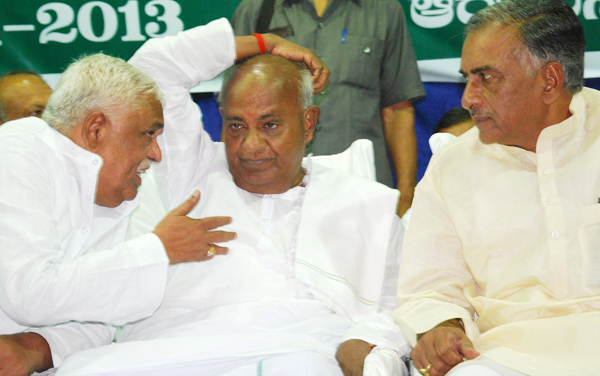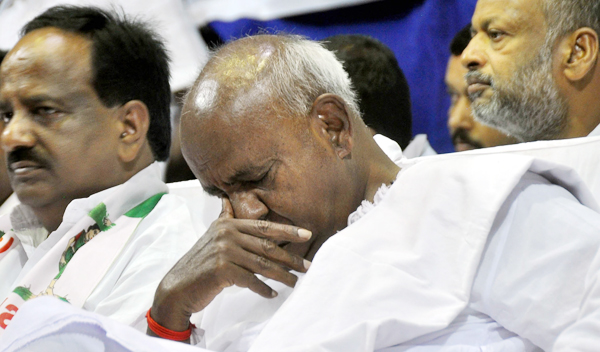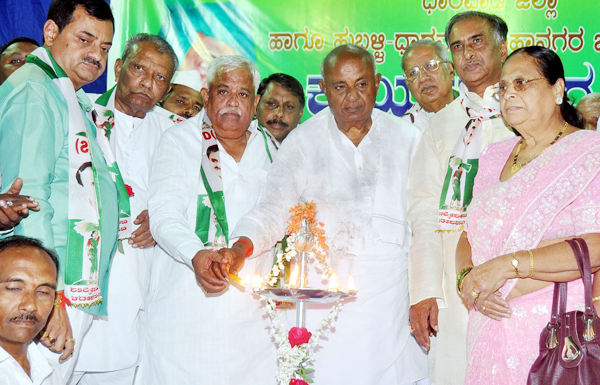
Bijapur, Jan 5: Amid the threat by B S Yeddyurappa to topple the BJP Government in Karnataka, JDS today said it was ready to support a Congress no-confidence motion against the Jagadish Shettar Ministry.
"JDS is ready to support no-confidence motion if the Congress moves it against the BJP Government in the state," party supremo and former prime minister H D Deve Gowda told reporters here.
JDS had made clear its stand on the issue from day one when differences cropped up between Karnataka Janata Paksha, floated by Yeddyurappa, and BJP, he said.
The party, however, would not join hands with BJP and form a government if Shettar lost majority in the assembly, Gowda said.
Yeddyurappa, who has the support of around 15 BJP MLAs, has said a decision on bringing down the first-ever BJP Government in the south would be taken on January 15 and vowed not to allow Shettar to present the budget next month.
Gowda alleged that the Congress was not duly performing its role as the main Opposition as it had not exposed any scandals of the present government. "It is H D Kumaraswamy (State JDS President) who exposed several ministers involved in scandals," he said.
Replying to a query, Gowda said he was not in favour of leading a Third Front due to health issues. Moreover, lack of unity among Third Front parties is a stark truth, he added.
Gowda appealed to political parties not to politicise gangrape incidents and support introducing stringent law against rapists.
JDS will support no-confidence motion: Deve GowdaBijapur, Jan 5, 2013, (PTI): Amid the threat by B S Yeddyurappa to topple the BJP Government in Karnataka, JDS today said it was ready to support a Congress no-confidence motion against the Jagadish Shettar Ministry.
"JDS is ready to support no-confidence motion if the Congress moves it against the BJP Government in the state," party supremo and former prime minister H D Deve Gowda told reporters here.
JDS had made clear its stand on the issue from day one when differences cropped up between Karnataka Janata Paksha, floated by Yeddyurappa, and BJP, he said.The party, however, would not join hands with BJP and form a government if Shettar lost majority in the assembly, Gowda said.
Yeddyurappa, who has the support of around 15 BJP MLAs, has said a decision on bringing down the first-ever BJP Government in the south would be taken on January 15 and vowed not to allow Shettar to present the budget next month.
Gowda alleged that the Congress was not duly performing its role as the main Opposition as it had not exposed any scandals of the present government. "It is H D Kumaraswamy (State JDS President) who exposed several ministers involved in scandals," he said.
Replying to a query, Gowda said he was not in favour of leading a Third Front due to health issues. Moreover, lack of unity among Third Front parties is a stark truth, he added.Gowda appealed to political parties not to politicise gangrape incidents and support introducing stringent law against rapists.
Normal 0 false false false EN-US X-NONE X-NONE







Comments
Add new comment